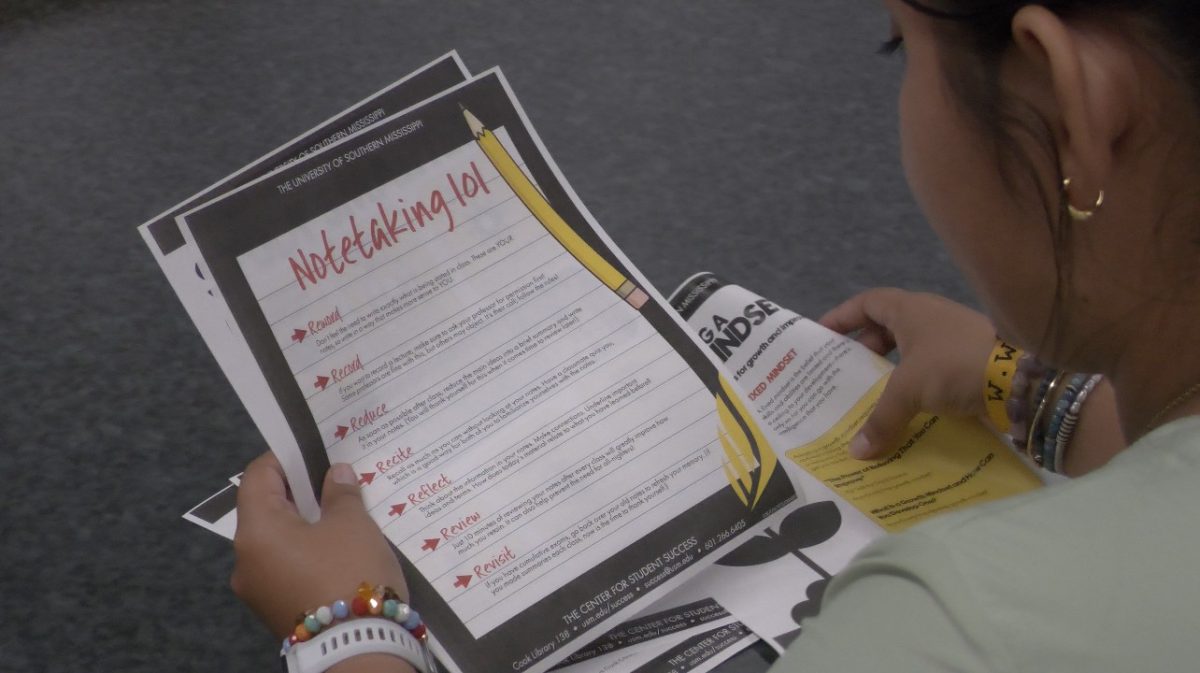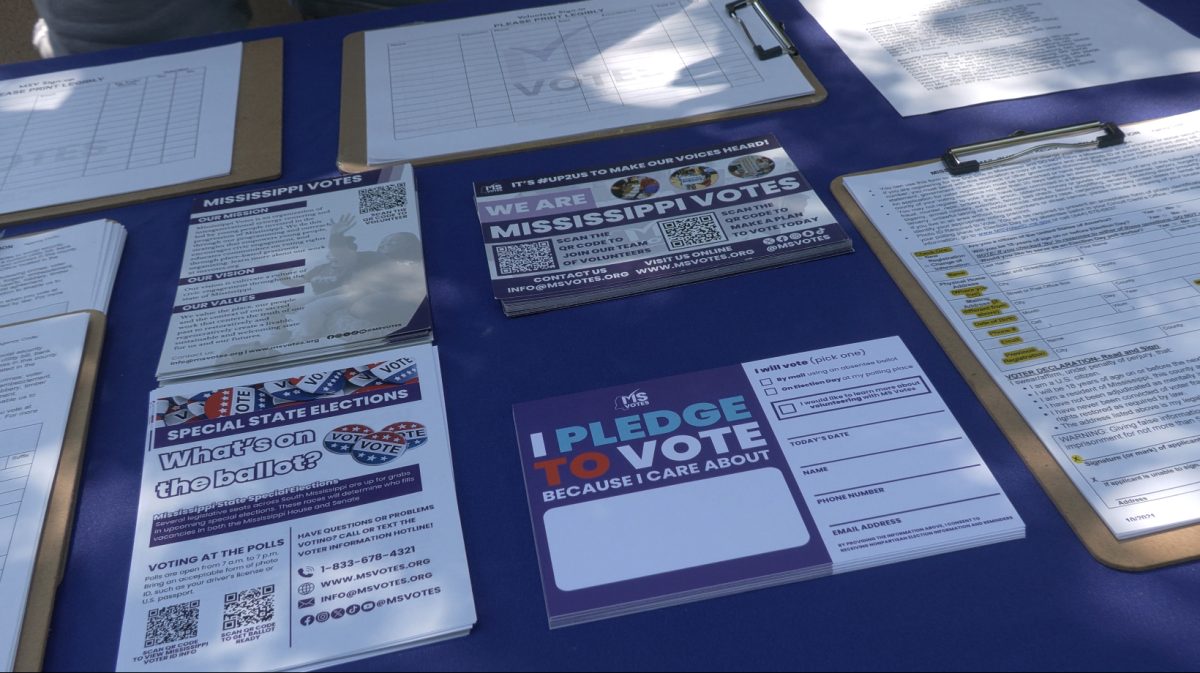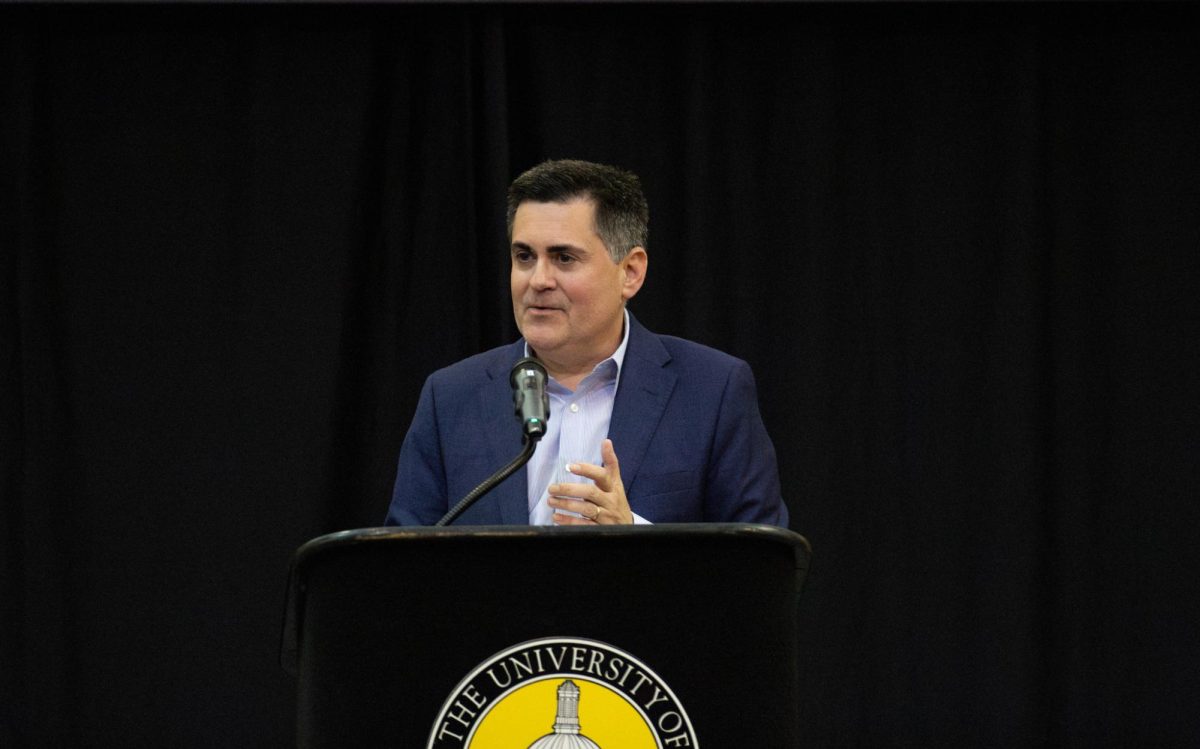
The Dale Center for the Study of War & Society at The University of Southern Mississippi kicked off the 10th Annual Richard McCarthy Lecture Series on Monday. Dan Hallin, professor of communications at the University of California in San Diego, presented the lecture “Reporting the Vietnam War.”
Hallin, a well-published scholar and recipient of several awards for his books, has written on the media and war, including Vietnam, Central America and the Gulf War. His research concerns journalism, political communication and the comparative analysis of media systems, according to UC San Diego’s Department of Communications.
Hallin raised two major issues in his lecture: the common misconception that media is the source of the public opinion shift that enabled the end of the war in Vietnam, and the similarities and differences with more recent conflicts in U.S. history.
“The timing of the change just isn’t right to make the point that it was the change in the news coverage that changed public opinion,” Hallin said. The scholar argued that the media were more followers than they were leaders in the change of opinion and policy on the Vietnam War.
He insisted that the media coverage should be placed in a larger context than thinking of it as the cause of these changes in public opinion, arguing that public opinion changed in relation to the long span of the war but also on a deep cultural contradiction.
“Our culture of war that mobilizes public support for a war, is based on the idea of total war as we knew it in World War II,” Hallin said. “It’s based on a war in which the national existence is at stake, and we think of the war as being a sacred cause to which we dedicate everything.”
“In the nuclear age we don’t fight total wars,” he said. “Our wars are limited wars, an extension of politics by other means. They are not a sacred cause, they’re an instrument to accomplish some political end. That is very hard for the public to accept, for the soldiers to accept, because it is not a limited war for them.”
Hallin also commented on the similarities with the Vietnam War he observed in the way the Iraq war developed and in its media coverage, which he said he found very disheartening.
The major differences which he pointed out included the globalization of the world media that allows, for example, the Arab world to have a voice in the recent conflict, but also media technology that makes it much harder for the military to control circulation of images, referring to the Abu Ghraib scandal in 2004.
Associate Professor of History and Faculty Fellow in DCSW&S Heather Stur is coordinating the McCarthy Lecture Series.
“All of our events are free and open to the public. It’s our way to bring the academic knowledge that’s created by our colleagues throughout the country and make it available to the Hattiesburg community,” Stur said.
DCW&S will be hosting two more lectures. Major General Buford “Buff” Blount, a retired U.S. Army officer, will present “The General and the Journalists: Embedded Media, the 3rd Infantry Division and Operation Iraqi Freedom,” on Monday, Sept. 29. Heather Stur will talk about war correspondent Dickey Chapelle in her talk entitled “What’s a Woman Doing Here?” on Monday, Oct. 6.
“Being that the U.S. has been at war for now more than 10 years, war and why the U.S. gets involved in war is something that is on a lot of Americans’ minds,” Stur said. “I just hope that people who come to our talks leave with a better understanding of how war shapes politics, society and culture in the United States.”































